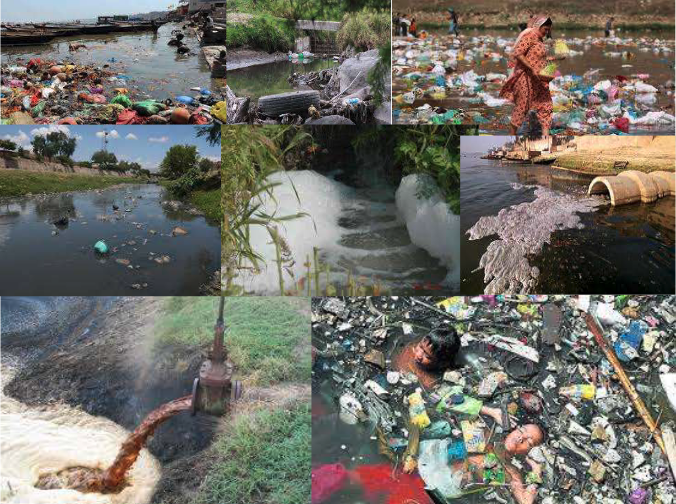
According to the Central Pollution Control Board, more than three and a half hundred rivers in the country are moaning due to pollution. The aquatic ecosystem of many rivers is on the verge of destruction due to being filled with pollutants for years, putting them at risk of becoming biologically dead. Water pollution also contaminates the land and the atmosphere and puts humanity in deep trouble.
London's famous River Thames was declared biologically dead in 1957 after water pollution destroyed almost all plant and animal life in the waterway. However, after a long struggle of six decades, it succeeded in making it pollution-free only last year. The phenomenon of the Thames becoming biologically dead and alive again is a great lesson for the global community. Various side effects have to be seen due to not establishing control of water pollution. For example, due to pollution, the amount of oxygen in the water decreases, due to which the life of aquatic organisms becomes difficult. At the same time, the concentration of contaminants in the grains, fruits, and vegetables grown by irrigating with polluted water becomes high, due to which diseases and death start knocking.
Water pollution also affects the economy. According to the World Bank, the decline in water quality in the world reduces by a third of the potential economic growth in heavily polluted regions. Clean water plays an important role in economic development. While its accessibility increases the efficiency of citizens by protecting them from water-borne diseases and also helps in economic savings, billions of rupees are spent every year on machinery to make water potable and clean polluted water bodies. Tourism activities are affected by polluted water bodies, causing a loss of one billion dollars annually to this industry.
Water pollution affects the physical and mental development of people, due to which they are not able to develop into mature human resources. In this way, water pollution hurts national income. The Sixth Goal of Sustainable Development calls for universal and equitable access to safe and affordable drinking water. However, this is possible only when people stop polluting the water bodies, water conservation and harvesting become a basic duty and people understand the value of every drop of water. Despite three-fourths of the earth's surface being covered by water, only one percent of it is within our reach. Therefore, we have to show seriousness in the diagnosis of water pollution and water conservation.
Pakistan: Polio cases increasing continuously in Pakistan, a campaign started again
A new nationwide anti-polio campaign was launched in Pakistan on Monday. This campaign has been s
A major accident took place in Hathras, Uttar Pradesh on Tuesday. A stampede broke out during Bho
The central government on Tuesday rejected West Bengal Chief Minister Mamata Banerjee's allegatio
There are many theories on the death of martial arts legend Bruce Lee. Now recently a new study c
Extraction 2 Hindi Teaser Release: Fans are eagerly waiting for the popular Hollywood film Extrac
The air quality in the country's capital Delhi is worsening. Due to this, the people of Delhi are
INLD supremo Om Prakash Chautala wanted to form a third front in national politics. Chautala, alo
Sardaar ji 3 Collection: Hania-Diljit's film rocks the box office, earns so much in two days
On June 27, Diljit Dosanjh returned to theaters with the third installment of his hit franchise S
Sri Lankan President Ranil Wickremesinghe said that he wants the Indian rupee to be used at par w
SS Rajamouli Announces New Film Made In India: Veteran director SS Rajamouli announces his next f